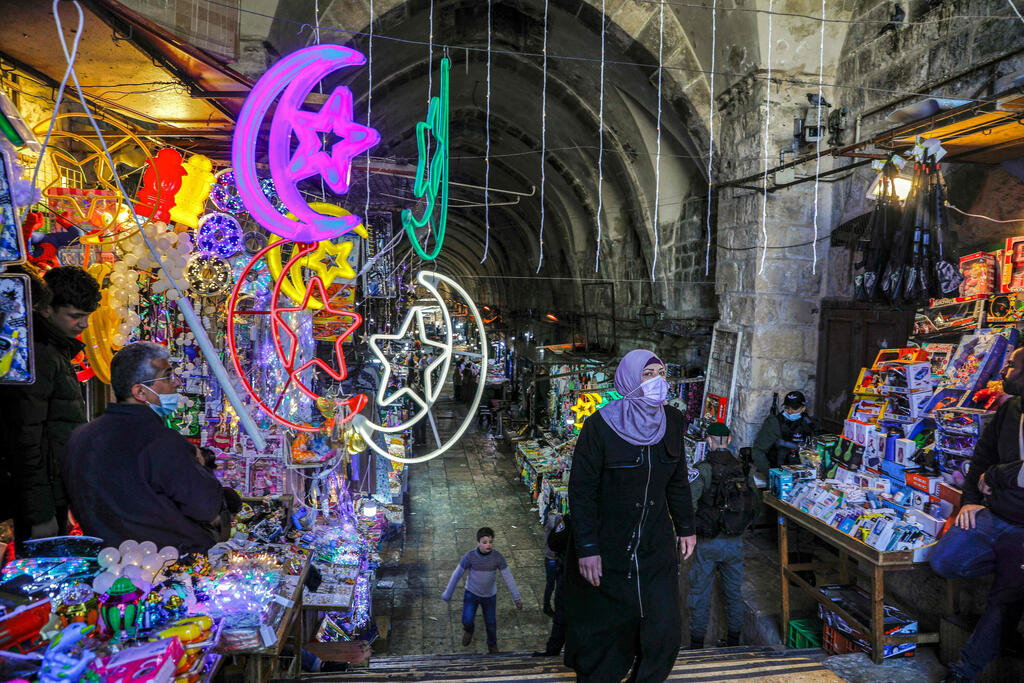The last time the ancient alleyways of Jerusalem’s Old City were packed with people shoulder to shoulder, no one had heard of the coronavirus.
Last year, health restrictions put a damper on spirits during Islam’s holiest month with a lockdown; visiting the Old City and praying at Al-Aqsa Mosque was forbidden. But this year the rules have eased, and people are out, buying all they need to celebrate the holiday.
Ramadan, when Muslims refrain for eating and drinking from sunrise to sunset, and gather for festive break-fast meals and to exchange gifts at night, kicks off on Tuesday.
What a difference a year makes.
With many people inoculated and many restrictions lifted, foot traffic is noticeably up over last year, and the familiar Ramadan economic boost seems to be gradually returning to the Old City.
It is a welcome sight for shopkeepers who say the holy month will provide financial relief after a devastating year.
Haj Wadie Halawani, whose shop is a fixture in the Old City, says this Ramadan, things are looking up.
“Last year was catastrophic for shopkeepers. I hope it doesn’t repeat itself. Shops and mosques were closed. But we are upbeat; there is a good turnout by shoppers.”
5 View gallery
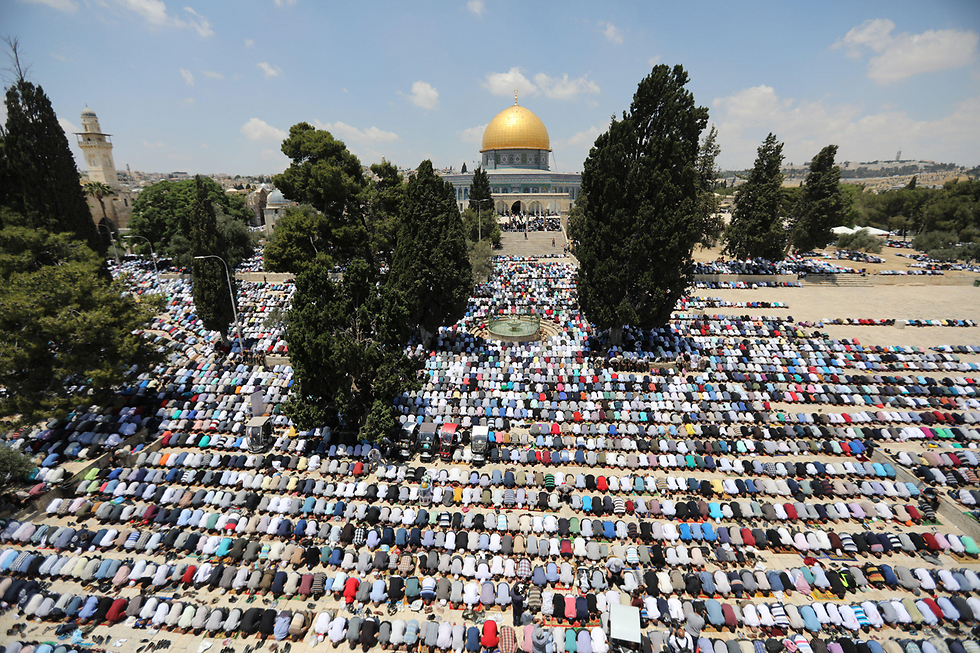

Muslim worshippers holding Ramadan prayers at the Al-Aqsa Mosque in Jerusalem before the pandemic
(Photo: Reuters)
Halawani, who welcomes foreign passersby in English, says that even in a normal year, local businesspeople patiently await the holy month and the accompanying increase in sales.
“Shopkeepers may lose money for 11 months, but during this month it is possible to make up for it and so stay solvent and in business for several more months.”
Amin Abu Omar owns a clothing store. He told The Media Line that he, like other shopkeepers, suffered massive losses in the last year. Jerusalem depends on tourism and without it business falls, he says.
“Praise be to God, the commercial movement and the Ramadan preparations are better than last year. There were long shutdowns, and it was tough on us,” says Abu Omar. “I am feeling optimistic because we will be open during Ramadan and there will be prayers at Al-Aqsa Mosque.”
Ramadan typically draws tens of thousands of Muslims every day to the mosque and the adjoining Dome of the Rock for evening Tarawih prayers. The faithful believe the Prophet Mohammad ascended to heaven from the site.
Thousands of people will spend thousands of dollars, and shopkeepers are breathing a sigh of relief.
In the absence of foreign visitors, not allowed entry to the country, Palestinian citizens of Israel have come to the rescue. Many visit to pray at Al-Aqsa and to shop in the Old City’s bazaars.
5 View gallery
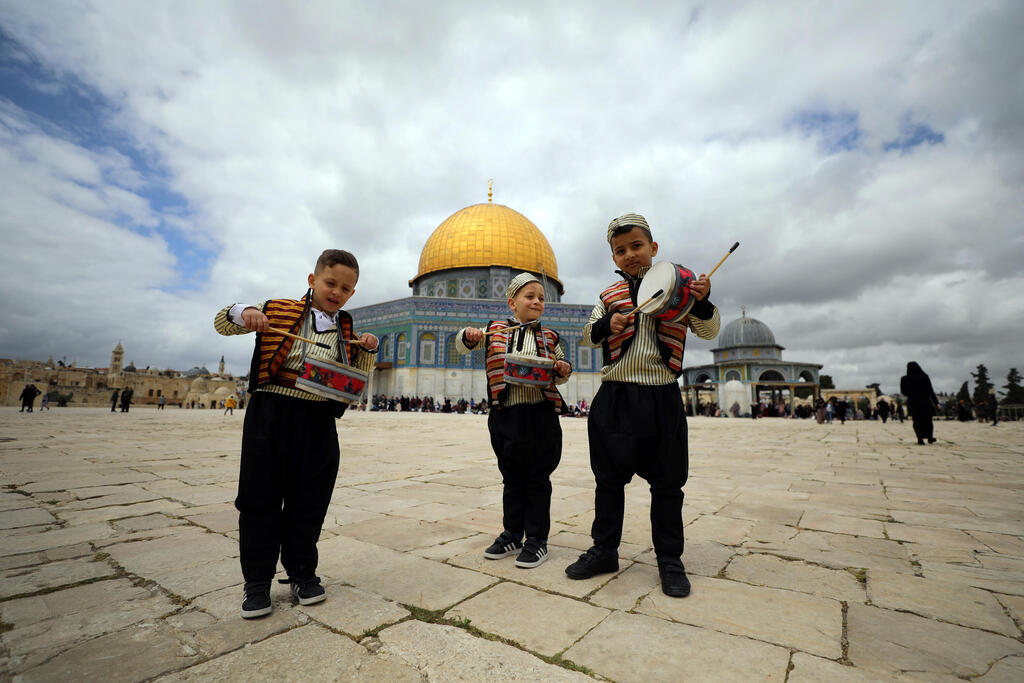

Children play music at the Temple Mount as Muslims prepare for a Ramadan with eased COVID-19 restrictions, April 2021
(Photo: Reuters)
One day before the arrival of the holy month, Emad Dahleh from Tur’an, 4 miles north of Nazareth, was visiting with his family.
“Ramadan is a dear visitor to all of our hearts. We wanted to welcome Ramadan with a visit to Al-Aqsa Mosque, pray, walk and shop in the ancient atmosphere of Jerusalem.”
Dahleh says the lockdown brought serious hardship to the city, and it is his duty to help.
“The city, this market and the owners of these stores suffered a great deal. But we, the Palestinians in Israel, have an obligation to support the merchants of Jerusalem.”
5 View gallery
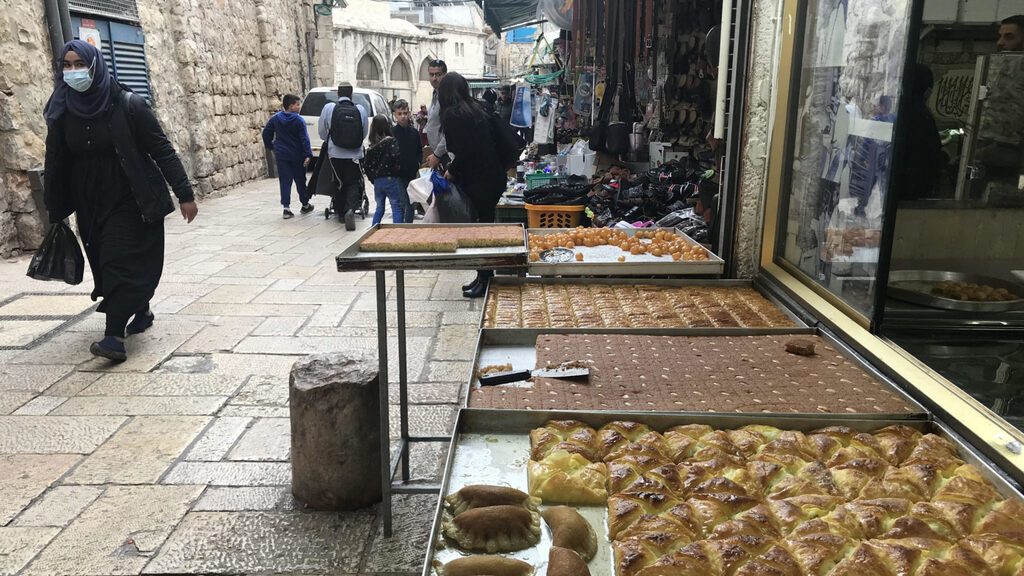

Al-Najah Sweets on the Via Dolorosa in Jerusalem’s Old City
(Photo: Mohammad Al-Kassim/The Media Line)
Abu Ammar Sidr, who is a muezzin (person who gives the call to prayer at a mosque) says he is happy to see life returning to the Old City.
“We were in great distress. But I am very pleased to see people come to Al-Aqsa Mosque.”
Sidr, who lives mere yards away from Al-Aqsa, appreciates people like Dahleh. “May God reward them with good and keep them a supporter of Al-Aqsa Mosque.”
Less than a mile from Al-Aqsa, Al-Najah Sweets, located on the Via Dolorosa, is back working on all cylinders. The pastry shop has been satisfying clients’ sweet tooth for more than five decades.
Aboud Abu Sbaih, the owner, says that sales saw a sharp decline during the holy month last time around.
5 View gallery
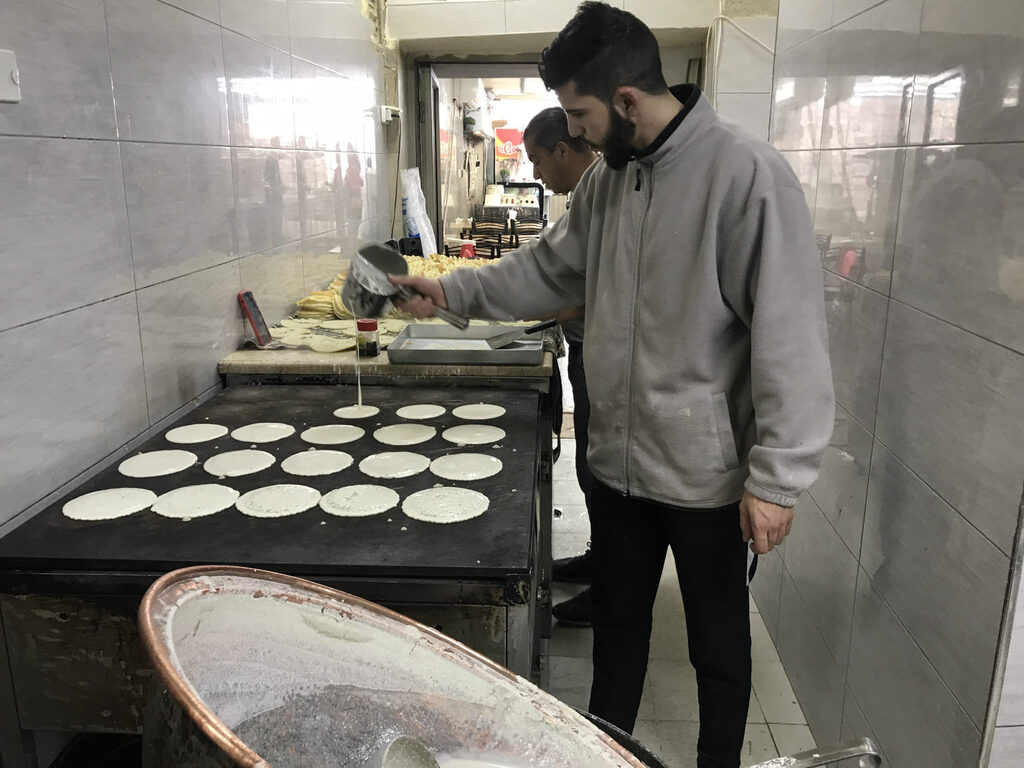

Noor Abu Sbaih makes qatayef at Al-Najah Sweets in Jerusalem’s Old City
(Photo: Mohammad Al-Kassim / The Media Line)
“Last year the Old City was miserable; shops, merchants and the people were sad.”
But now he can’t hide the big smile on his face; he says he feels great about Ramadan this year.
“Thank God this year the feeling is beautiful, and shoppers are returning to the Old City.”
People eat a lot of sweet foods during Ramadan, and the family-owned Al-Najah is stocking up on ingredients for the most popular item, qatayef.
Abu Sbaih, his mother and his brother are hard at work making the fried pancakes that are usually filled with either walnuts or cheese.
“We have been anticipating this increased business, and we have been preparing for a while,” he says.


